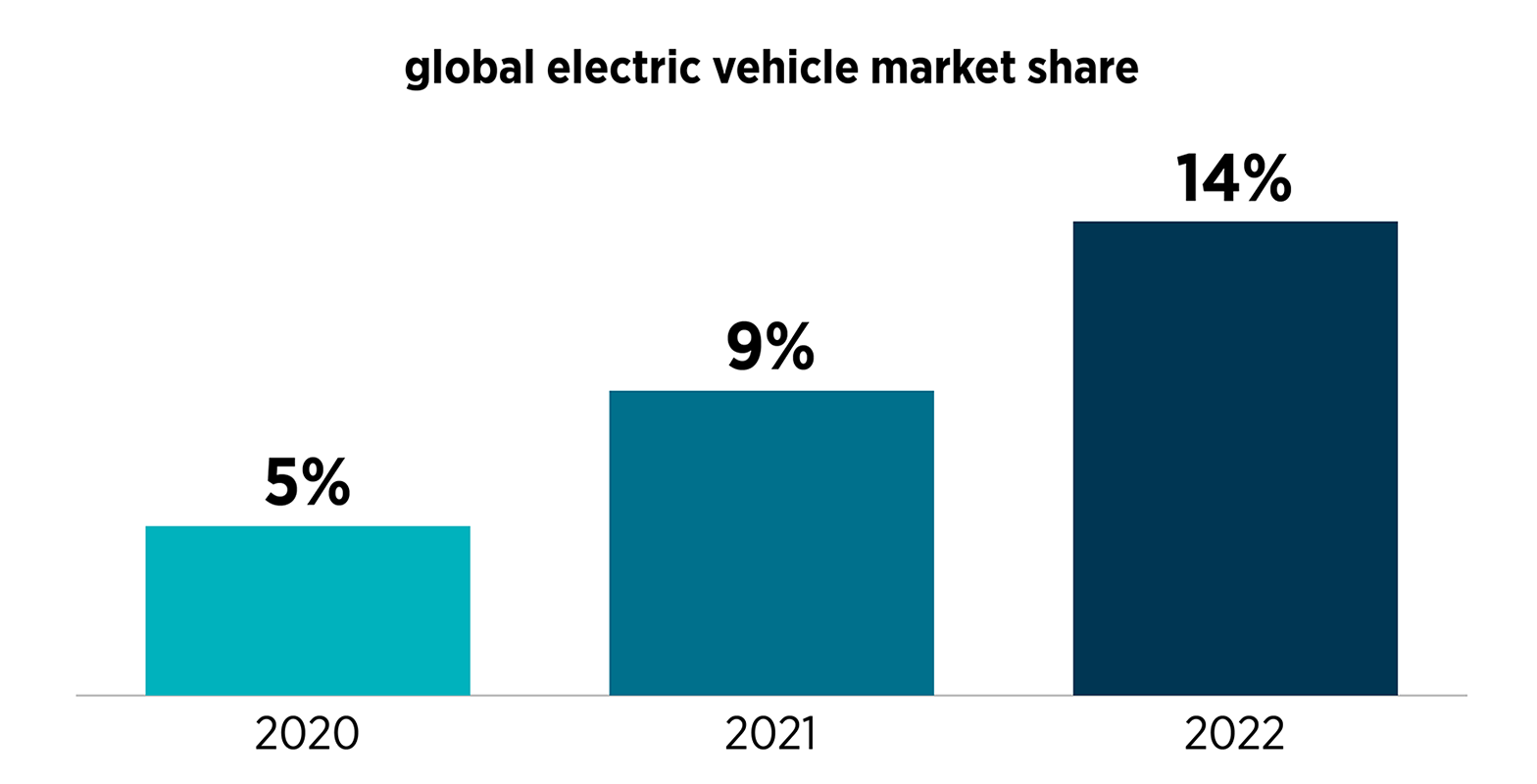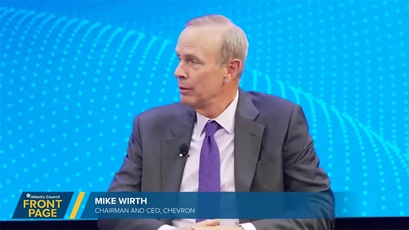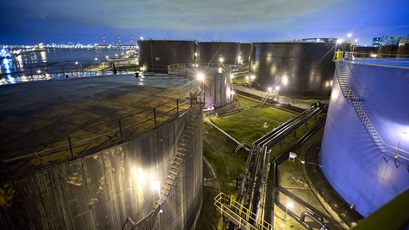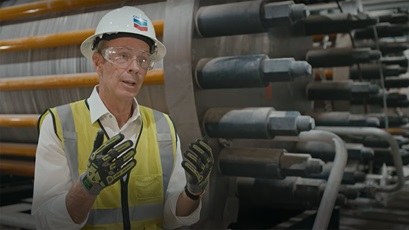alternative fuels
renewable fuels offer viable option for customers
2 min read | march 13, 2024
Chevron’s Kaustav Sinha (right) speaks with Niel Hiscox (left), president of Clarify Group, an automotive consulting firm, at Reuters Automotive USA 2023.
More electric vehicles are on the road today, but they still make up only a fraction of world's car sales. And at least for the near future, most drivers will be behind the wheel of gasoline- and diesel-powered cars.
That suggests lower carbon intensity fuels may be increasingly important in serving that market gap.

Approximately 14% of all new vehicles sold around the world in 2022 were electric vehicles. This is a leap from 9% in 2021 and 5% in 2020, according to the International Energy Agency.
why it matters
According to the United States Environmental Protection Agency, transportation is the largest contributor to greenhouse gas emissions in the U.S.
Currently, most vehicles on the road are built to run on traditional gas and diesel. U.S. infrastructure supports that, and analysts expect it will likely take years to adopt and install new systems. In the meantime, lowering the carbon intensity of existing vehicles can help reduce global greenhouse gas emissions.

Using fuels such as renewable gasoline blends, renewable diesel, biodiesel blends, and compressed and renewable natural gas can lower the carbon intensity of most vehicles currently on the road.
Speaking at the Reuters Automotive USA 2023 conference in Detroit, Michigan, Kaustav Sinha, Chevron’s director of strategic partnerships, noted that drop-in fuels, such as renewable gasoline blends and renewable diesel, can work with internal combustion engines and existing fuel infrastructure. That makes them a viable, scalable, lower carbon option that preserves customer choice, while helping make a difference in lowering carbon intensity.
“You don’t have to change your vehicle. You don’t have to buy a new product. You can use the existing fuel infrastructure.”
kaustav sinha
director of strategic partnerships
more on that
Collaborating with public and private organizations can encourage scaling up the distribution and use of renewable gasoline blends and biofuels. Working together can result in policies and incentives that favor the switch to lower carbon intensity fuels.
One example includes Chevron’s use of biofeedstocks (generally, plant-based oils) at one of its refineries. The company’s El Segundo Refinery became the first fluid catalytic cracker in the United States to produce renewable fuels. With its acquisition of Renewable Energy Group in 2022, Chevron became one of the largest producers of biodiesel and renewable diesel in the U.S.
chevron is targeting a production capacity of
100,000
barrels per day of renewable diesel, sustainable aviation fuel, biodiesel and other biofuels by 2030
Reducing the carbon intensity of transportation will take many different paths, Sinha said. And these drop-in fuels represent one of the options.
kaustav sinha
director of strategic partnerships
topics covered
related content
-

 novel ideas, established companies key to advancing lower carbon tech
novel ideas, established companies key to advancing lower carbon techemissions solutionsjanuary 14, 2025
-

 chevron CEO talks growing production, efficient spending
chevron CEO talks growing production, efficient spendingemissions solutionsdecember 18, 2024
-

 biofuels can help maritime industry lower carbon intensity
biofuels can help maritime industry lower carbon intensityalternative fuelsnovember 08, 2024
-

 hydrogen project tour highlights expertise, role in energy market
hydrogen project tour highlights expertise, role in energy marketalternative fuelsnovember 04, 2024
chevron email updates
Subscribe to our newsletter to receive news and updates.



